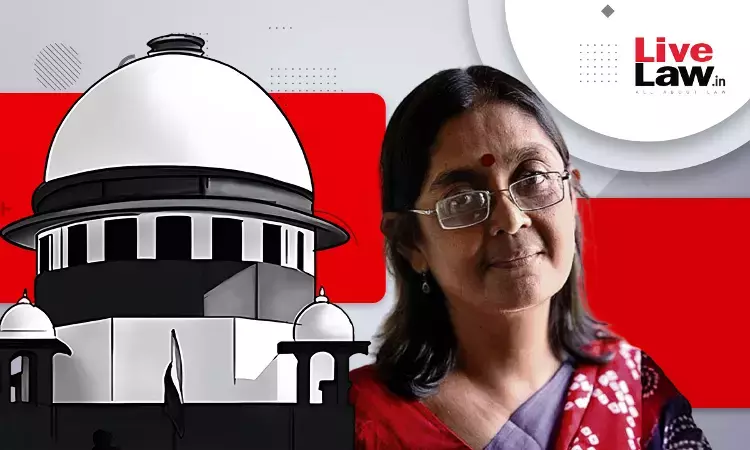'No Evidence Establishes UAPA Case, Links With Banned Groups' : Bhima-Koregaon Accused Shoma Sen Argues For Bail In Supreme Court
Awstika Das
9 Feb 2024 7:09 AM IST

Next Story
9 Feb 2024 7:09 AM IST
Former Nagpur University professor and Bhima Koregaon-accused Shoma Sen defended her bail plea in the Supreme Court on Thursday (December 8) by alleging a lack of evidence connecting her to the case under the Unlawful Activities (Prevention) Act, 1967, or establishing her purported links with the proscribed Communist Party of India (Maoist).A bench of Justices Aniruddha Bose and Augustine...
